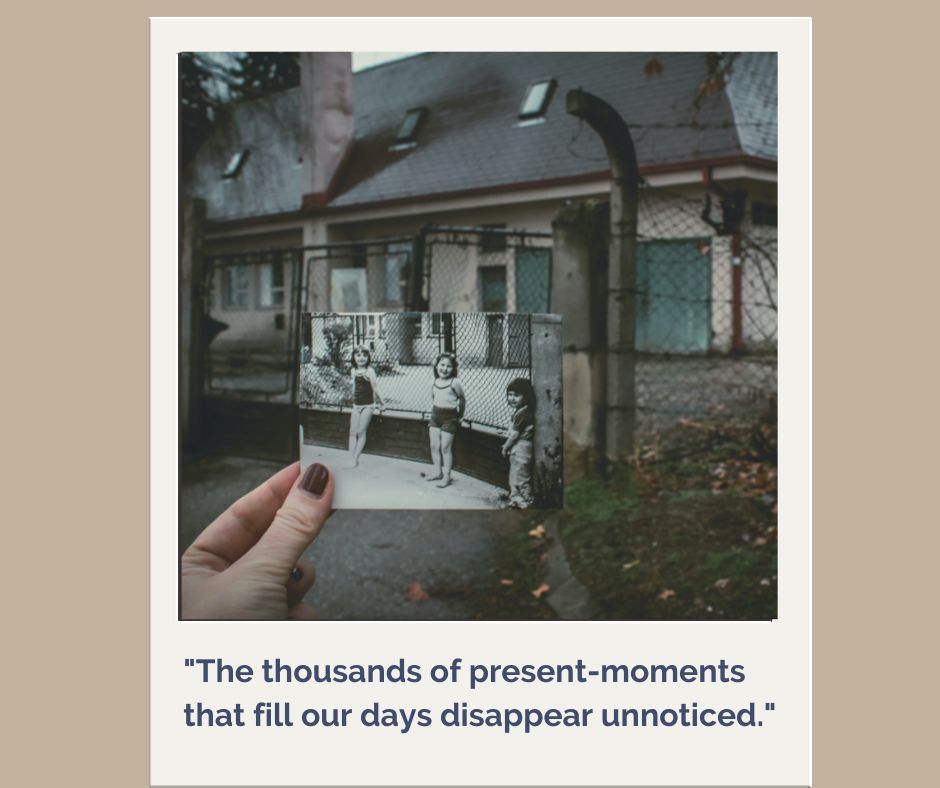When Memory Becomes Our Master

Nobel winning psychologist and economist Daniel Kahneman tells this story.
A man is listening to a symphony, and it’s glorious. Three movements that build toward a brilliant climax. And then, just as the symphony is ending there is a horrid screeching sound. “It ruined the whole thing,” the man says. “Wiped out the whole experience.”
Kahneman points out that, of course, the whole experience wasn’t ruined. The man had had nearly twenty minutes of bliss. Yet a few seconds of painful discord became the “whole” of the experience; all that came before was eliminated.
Each of us, says Kahneman, has an “experiencing self” and a “remembering self.” The experiencing self lives in the present, knows whatever is happening now. The remembering self is the part of us that evaluates our past experiences and maintains the story of our lives. It does this by pulling certain moments from any particular event or happening and creating the memory after the actual experience.
So, in the case of the ruined symphony, the one who has the privilege of declaring the whole adventure a disaster is the remembering self.
When I heard the symphony story, I immediately thought of a Maine summer vacation where everything went splendidly until the last day. When we checked out of the rental, the owner was angry that one of the kids had gotten ink on a white bed spread. That became, in our telling, the vacation from hell.
I recalled certain relationships that were beautiful for years, and then ended on some unfortunate note—how I tended to see the whole relationship as bad. I thought of jobs that were filled with years of delight and fulfillment but remembered mostly for some falling out or senseless offense.
The reason our remembering self has the power to define our happiness and joy is that we invest so little in our experiencing self. The thousands of present-moments that fill our days are not really allowed to impress themselves on our hearts and minds. They disappear unnoticed. When the remembering tyrant creates a “memory” that disposes of real moments of joy, laughter, love—even pain and struggle that were critical to our growth and maturation—we stand down. We don’t stick up for ourselves. We don’t correct the record.
This is why it is so important to wake up. And stay awake. It’s why we need some daily prayer practice that draws us into the Now. If we can sink deeply into our daily experiences, let them imprint indelibly, we can tell the memory tyrant to take a break. We don’t need him to slap a label on what just happened. We know what we know.
Thanks, David. I hadn’t thought of memory that way, but certainly have had many experiences shaded by how I’ve remembered them – both making them more idyllic and the worse for the remembering. Perhaps it takes someone else’s words – yours – to bring that up. Peace
Hi David,
Thank you for sharing both the main story and your thoughts. Interesting ideas and as Johnna pointed out, the ‘remembering’ self can even make something better than it may actually have been- thus in my mind the ‘experiencing’ self will be impacted differently.
The point that we often gives more credence to the remembering self is good- however the real message to me is in enhancing, through engagement and pray what we are experiencing every day, every moment. And that is the presence of God in our lives each of those moments, every day.
Thank you, David. Have a wonderful and blessed day.
Thanks, John—as you and Johnna noted, the remembering self can also make events better than they actually were. But in either case—better or worse—the point is, it doesn’t reflect reality. For that, as you rightly say, we can only stay grounded in this very moment.
David, I read your post and immediately thought it was great. But then, 20 minutes later, I read it again, letting my Remembering Self have a go at it. He thought it was great too!
In the mouth of two or three witnesses shall anything be established.
That’s a rarity—whenever any two selves within us agrees on anything!
what a daily occurrence for me! I can be having a great day at work and then can say the wrong thing at the wrong time to a trader or client and the day is ruined!
Yes—so true. I’m trying to just NOTICE when that happens, and seeing myself as an objective observer might. If I can do that—and maybe on a good day I can!—then I can reevaluate my feelings and choose to hold onto my direct experience.—whatever that is.
This was very helpful David. Thank you.
The topic of memory, especially the mechanics of memory, is a fascinating topic to explore!